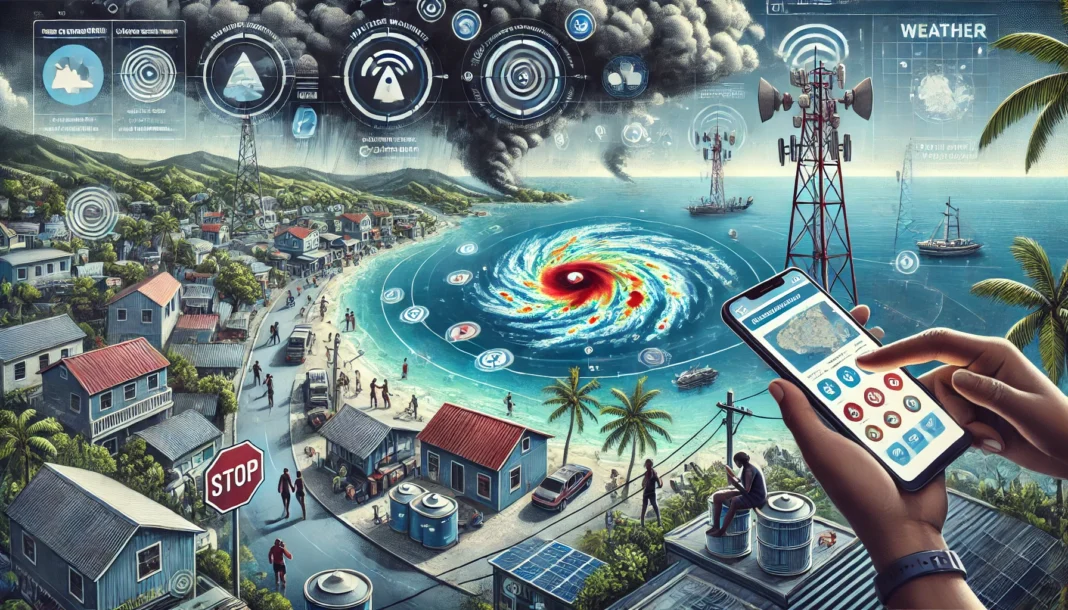The Caribbean is no stranger to extreme weather conditions, particularly during hurricane season, which runs from June to November. With the threat of hurricanes, tropical storms, and other severe weather events, it’s essential for residents and visitors alike to stay informed about weather warnings and alerts. Being aware of incoming storms or hazardous conditions can mean the difference between safety and disaster.
This article explores the best ways to stay informed about weather warnings and alerts in the Caribbean, from traditional communication methods to modern digital tools, and offers tips for preparation and safety.
Understanding Weather Warnings and Alerts
Before diving into how to stay informed, it’s important to understand the types of weather warnings and alerts that are commonly issued in the Caribbean. These alerts help individuals and communities prepare for potential hazards and take the necessary steps to protect themselves and their property.
Types of Weather Warnings
- Hurricane Watch: Issued when hurricane conditions (sustained winds of 74 mph or higher) are possible within the next 48 hours. This is a time to begin preparations and stay updated.
- Hurricane Warning: Issued when hurricane conditions are expected within the next 36 hours. It indicates that preparations should be completed and evacuation plans activated if necessary.
- Tropical Storm Watch: Issued when tropical storm conditions (sustained winds of 39 to 73 mph) are possible within the next 48 hours.
- Tropical Storm Warning: Issued when tropical storm conditions are expected within the next 36 hours.
- Storm Surge Warning: Issued when there is a danger of life-threatening flooding from rising water moving inland from the coastline.
- Flash Flood Watch/Warning: Issued when heavy rainfall is expected, potentially causing flash flooding. A warning indicates that flooding is imminent or already occurring.
- Tornado Watch/Warning: Though rare, tornadoes can occur during hurricanes. A watch means conditions are favorable, while a warning means a tornado has been sighted or detected by radar.
Understanding the difference between a watch (conditions are possible) and a warning (conditions are imminent) is crucial for timely action.
How to Stay Informed About Weather Warnings
In today’s connected world, there are multiple ways to stay informed about weather warnings and alerts in the Caribbean. From traditional methods to advanced digital tools, knowing where and how to get reliable information is key to staying safe.
1. Mobile Apps and Notifications
Mobile weather apps are one of the most convenient ways to receive real-time weather alerts. Many apps allow users to set their location and receive notifications for severe weather warnings.
- National Hurricane Center (NHC) App: The NHC provides detailed forecasts, alerts, and updates on hurricanes and tropical storms affecting the Caribbean. The app is user-friendly and offers timely alerts.
- Caribbean Weather Apps: Several region-specific weather apps, such as “Caribbean Weather” or “Weather Caribbean,” provide local forecasts and alerts for islands across the region.
- MyRadar: This app offers live radar updates and weather warnings, including hurricane tracking, which can be especially useful during storm season.
- AccuWeather and The Weather Channel: Both of these global weather apps provide detailed weather information and emergency alerts tailored to the user’s location.
Ensure that notifications are enabled on your phone, and always check for updates during storm season.
2. SMS and Emergency Alert Systems
Many Caribbean governments have implemented SMS emergency alert systems, which send weather warnings directly to mobile phones. These systems are designed to reach a large number of people quickly, providing essential information about impending severe weather.
- CAP (Common Alerting Protocol): This system is used across several Caribbean nations, providing multi-channel alerts via SMS, email, and public broadcasts.
- Local Emergency Broadcasts: In some areas, local governments also use public announcement systems, such as sirens or loudspeakers, to broadcast emergency alerts for hurricanes, storms, and floods.
Residents and visitors should ensure their phones are registered to receive emergency alerts if this service is available in their area.
3. Television and Radio Broadcasts
Television and radio remain reliable sources for staying updated on weather conditions. During hurricane season or when severe weather is forecast, Caribbean news channels and radio stations provide regular updates from meteorological offices and emergency services.
- Local TV Weather Channels: Many Caribbean countries have dedicated weather segments on national news channels. These segments often include live updates, radar images, and interviews with weather experts.
- NOAA Weather Radio: NOAA (National Oceanic and Atmospheric Administration) broadcasts continuous weather information and alerts via radio, including updates on hurricanes, tropical storms, and other weather hazards.
- Regional Radio Stations: In the Caribbean, radio stations play a key role in disseminating information. Tuning into local radio stations is particularly important during power outages when other forms of communication may be unavailable.
4. Online Resources and Websites
Meteorological websites provide detailed and up-to-date information about weather patterns, storm development, and warnings. Some of the most trusted sources for Caribbean weather updates include:
- National Hurricane Center (NHC): The NHC’s website (www.nhc.noaa.gov) offers real-time tracking of hurricanes and tropical storms, along with alerts and guidance for the Caribbean region.
- Caribbean Institute for Meteorology and Hydrology (CIMH): The CIMH provides regional weather forecasts, updates, and disaster preparedness resources tailored to Caribbean countries.
- Local Meteorological Offices: Most Caribbean nations have their own meteorological services that offer daily weather forecasts, storm warnings, and preparedness tips. Websites like Jamaica’s Meteorological Service (www.metservice.gov.jm) and Barbados Meteorological Services (www.barbadosweather.org) provide local and regional updates.
Bookmarking these websites ensures quick access to reliable information during storm season.
5. Social Media Platforms
Social media is increasingly used as a tool for disseminating real-time weather alerts. Many meteorological services, government agencies, and weather-related organizations have active social media accounts where they post frequent updates during storms and other weather events.
- Twitter and Facebook: Accounts like @NHC_Atlantic (National Hurricane Center), @WMO (World Meteorological Organization), and local Caribbean weather authorities provide regular updates and official weather alerts.
- WhatsApp Groups: In many Caribbean communities, WhatsApp is used to share emergency information. Joining local community groups or receiving alerts from disaster management offices via WhatsApp can keep you informed.
Make sure to follow reliable, official accounts to avoid misinformation, and check for updates regularly during severe weather events.
Tips for Staying Prepared
Staying informed is only part of the preparation process. Here are some key steps to ensure you’re ready for severe weather events in the Caribbean:
- Have an Emergency Plan: Know where to go if an evacuation is ordered and have a plan for communicating with family and friends.
- Assemble a Hurricane Kit: Include essentials like bottled water, non-perishable food, a first aid kit, flashlights, batteries, important documents, and a portable phone charger.
- Follow Evacuation Orders: If local authorities issue an evacuation order, follow it immediately. Roads can become dangerous quickly during storms, and it’s important to leave early.
- Stay Informed During Power Outages: Keep a battery-powered or hand-crank radio available for weather updates in case of a power outage. Also, make sure your phone is fully charged before the storm arrives.
Conclusion
Staying informed about weather warnings and alerts in the Caribbean is crucial, especially during hurricane season. With a combination of mobile apps, emergency alert systems, radio and television broadcasts, and social media, residents and visitors can receive timely and accurate information. By staying updated and taking necessary precautions, you can ensure the safety of yourself and your loved ones in the face of severe weather events.
FAQ
What is the best way to receive real-time weather alerts in the Caribbean?
The best way to receive real-time weather alerts in the Caribbean is through mobile weather apps like the National Hurricane Center (NHC) app, AccuWeather, and local Caribbean weather apps. Many governments also offer SMS-based emergency alerts.
How can I prepare for hurricane season in the Caribbean?
To prepare for hurricane season, assemble an emergency kit, stay informed through weather apps, radio, and TV, and have an evacuation plan in place. Follow official alerts and evacuation orders if issued.
What should I do during a hurricane warning?
During a hurricane warning, secure your home, stock up on essential supplies, and follow any evacuation orders. Stay indoors and away from windows, and monitor weather updates via radio or mobile apps.
Can I rely on social media for weather updates?
Yes, but only if the information comes from official sources like the National Hurricane Center, local meteorological offices, or government agencies. Avoid unverified or unofficial posts that may spread misinformation.
What are the main types of weather warnings issued in the Caribbean?
The main types of weather warnings in the Caribbean include hurricane watches and warnings, tropical storm watches and warnings, storm surge warnings, and flash flood warnings.

